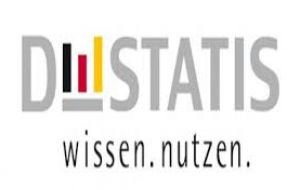MercoPress. South Atlantic News Agency
The mighty German economy slumps 0.2% in the third quarter
 Federal statistics authority Destatis reported a 0.2% slump in GDP between July and September, the first fall in the measure since early 2015
Federal statistics authority Destatis reported a 0.2% slump in GDP between July and September, the first fall in the measure since early 2015 Germany's years-long run of steady growth came to a screeching halt in the third quarter, official data showed this week, with a widely-expected bottleneck in the vital car industry matched by broader structural concerns.
Federal statistics authority Destatis reported a 0.2% slump in GDP between July and September, the first fall in the measure since early 2015 and worse than forecast by analysts after months of troubling economic indicators.
”The reputation of the invincible strong man (or woman) of Europe has received some scratches,“ commented ING Diba bank economist Carsten Brzeski.
A single fall in GDP does not point to a recession, which only becomes official if there are two successive quarters of shrinkage. But the figure represents a marked slowdown from the fast-paced growth 0.4% in the first quarter of the year and 0.5% in the second.
Economists still predict Germany will book its 10th consecutive year of expansion in 2019, although the pace this year and next will likely be slower than the 2.2% recorded in 2017.
”The slight fall in GDP was above all down to external trade developments,“ Destatis said, pointing to lower exports and higher imports than in the second quarter.
In Berlin, the economy ministry highlighted the introduction of the so-called WLTP exhaust testing cycle in response to the ”dieselgate“ emissions cheating scandal as the main brake on growth.
New car registrations plunged more than 30% cent year-on-year in September as the new regulations hit and buyers at home and abroad held off purchases.
The auto industry, Germany's largest, employs around 800,000 people in firms ranging from giants like Volkswagen or BMW to tiny components suppliers.
Economic think-tank IfW recently calculated that the third quarter saw the worst performance for the sector since 1997.
”Once this one-off effect has dissipated, the German economy's upswing will continue,“ the economy ministry predicted.
”Domestic fundamentals remain healthy,“ agreed economist Florian Hense of Berenberg bank. ”Chances are that we are back to growth at around its trend rate of around 0.4 per cent quarter-on-quarter already“ between October and December, he added.
Another temporary factor weighing on the German economy was the unusually hot and dry summer.
Starved of rainfall, the vital economic artery of the Rhine ebbed to record lows, throttling river shipments, especially for firms in the massive chemical industry like BASF.
Longer-term structural developments may offer more for economists looking to Germany's long-term prospects to worry over. As well as the export slowdown, Destatis highlighted ”mixed signals“ domestically.
”While more was invested in equipment and construction than in the previous quarter, private consumer spending fell,“ the statisticians found.
In recent years strong consumer spending supported by rising wages has proved a bulwark of German growth.
ING's Brzeski pointed to inflation in energy prices that ”completely erased“ pay increases in recent months.
What's more, Germany's aging population and low unemployment rate are proving a drag on growth, as companies struggle to find new skilled workers to hire in sectors ranging from construction to the digital economy.
Internationally, the export-oriented economy is suffering from rising protectionist threats, the prospect of lower trade with Britain after it leaves the EU next year and intra-EU tensions over heavily-indebted Italy's budget.
Earlier this month Germany's council of economic advisers - the so-called ”wise men” - urged the government to invest more in infrastructure and education.




Top Comments
Disclaimer & comment rulesCommenting for this story is now closed.
If you have a Facebook account, become a fan and comment on our Facebook Page!